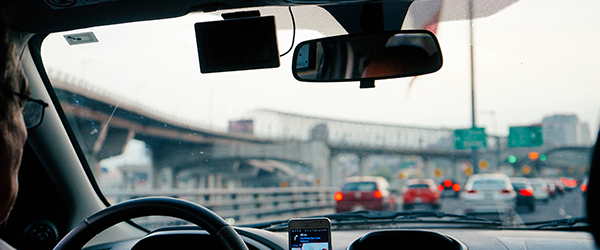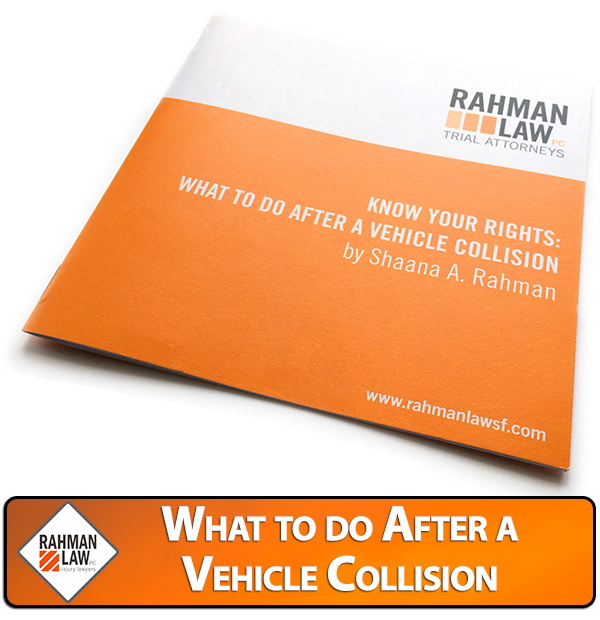
San Francisco has a great public transportation system network that is so effective, many San Francisco residents don’t even own a car! In 2014, a study found 88% of all new households (people who moved to San Francisco since 2000) didn’t own a car (source). This shows a rising trend in more families going car-free when compared to the total of all current households in San Francisco without a car, which is roughly 30% (source). 30% puts San Francisco in the top 10 cities in the nation for households without a car. At Rahman Law, we handle a lot of personal injury cases in San Francisco for pedestrians and bicyclists involved in a collision, and we know many of these bicyclists and pedestrians ride or walk because they do not own a car (and may not even need to own a car).
Not having a car to manage maintenance, fuel, and insurance on can be a financial relief for many people (and did we mention the psychological relief of not having to fight for a parking spot between street cleaning days here in San Francisco?!?), but sometimes we all need a car. After all, other California cities do not offer the same level of public transportation convenience available in San Francisco. Or maybe you’re thinking about a road trip to Las Vegas with a few friends? Let’s face it, sometime we all want or need a car to get us to our destination. People in households without their own car often rent one or borrow one for their long treks, but what many of us don’t fully understand is how insurance works when you’re driving a car that isn’t yours… until something happens.
There is an insurance policy known as a Personal Mobility Policy that a few insurance agencies provide. These policies typically cover private passenger cars that are being driven by but not owned by the policy holder (you). And most often, the car cannot be owned by a resident of your household, resident relative (someone related to you living in the same household), or an employer of you or any of these types of people. These policies may also include insurance to cover rental vehicles driven by you. Personal Mobility Policies offer a more affordable way to have protection when you’re behind the wheel of a car you don’t own should something go wrong.
Personal Mobility Policies can even go a step further than protecting you and your assets as a driver; these policies now often include coverage as a bicyclist, pedestrian, or as a passenger (even when using transportation networks for ridesharing services).
With Personal Mobility Policies covering things like bodily injury, property damage/loss, uninsured motor vehicle coverage, and even emergency road services on top of the standard comprehensive and collision pieces for people driving a car they don’t own, riding in a rideshare vehicle, riding a bike, or simply walking along on the sidewalk, Personal Mobility Policies might be best fit for the new San Francisco lifestyle as we continue to own fewer and fewer cars.
So if you don’t own a car but sometimes rent or borrow one, or if you ride a bicycle regularly (especially if you commute on your bike), or if you use rideshare services like Uber and Lyft, talk to your insurance provider and ask about a Personal Mobility Policy to see if they offer it and if it might be right for you. Some insurance companies will bundle it in with homeowners’ or renters’ insurance as an additional policy for a reduced premium, so if you have one of these insurances, start by speaking with your insurance agent there and asking about what’s right for you. Having the right coverage in place can help you should anything ever go sideways. Many of the phone calls we receive as personal injury lawyers in San Francisco stem from someone involved in a collision not having any or enough insurance.

